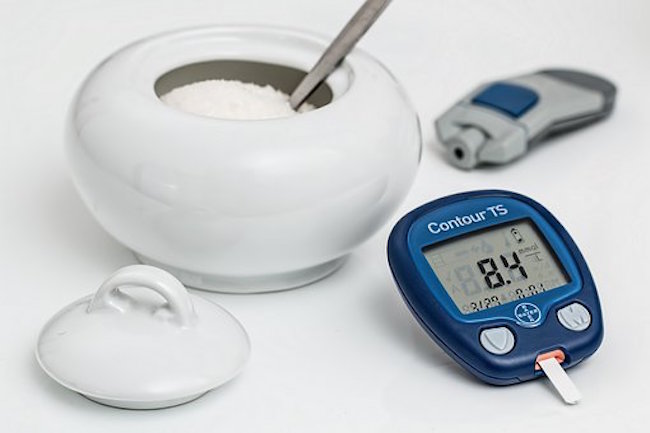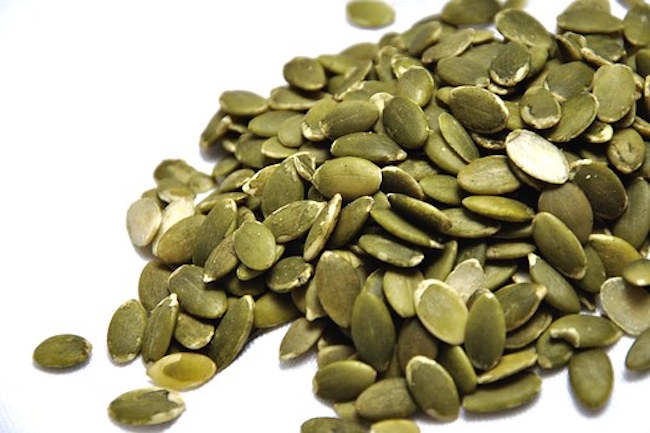Fasting helps reduce fat in an unexpected area: Researchers suggest fasting can also help reduce diabetes risk by: Evangelyn Rodriguez for Natural News Abstaining from foods and drinks for a set period of time may be good for your health, especially if you’re at risk of diabetes, according to a recent study. German researchers looked at the metabolic benefits of intermittent fasting and found that it can prevent fat accumulation in the pancreas — an event linked not only to obesity, but also to the onset of Type 2 diabetes. What is intermittent fasting? The practice…
READ MORETag: diabetes
Tart cherry supplements and juice can help lower heart disease and Type 2 diabetes risk, advise researchers
Tart cherry supplements and juice can help lower heart disease and Type 2 diabetes risk, advise researchers By Divina Ramirez for Prevention According to a recent study, tart cherry juice and supplements can help people with metabolic syndrome. A team of researchers from the University of Hertfordshire in the U.K. conducted a trial involving people with metabolic syndrome and found that consuming Montmorency tart cherries can reduce systolic blood pressure and insulin levels. What is metabolic syndrome? Metabolic syndrome is a group of risk factors that can increase a person’s likelihood of developing cardiovascular complications. Healthcare professionals agree that the following…
READ MOREConsuming fatty fish free from environmental pollutants can help lower risk of Type 2 diabetes
Consuming fatty fish free from environmental pollutants can help lower risk of Type 2 diabetes by: Michael Alexander for Natural News There’s a good reason why oily and fatty fish are considered some of the best foods to add to your diet: they’re not only packed with essential nutrients, they’re also a good source of omega-3 fatty acids, which are considered to be the healthy kind of fats, unlike the artery-clogging saturated fats in most meats and meat products. Medical research has shown that regular intake of fatty fish such as…
READ MOREStudy: Fasting lowers the likelihood of insulin resistance caused by obesity
Study: Fasting lowers the likelihood of insulin resistance caused by obesity by: Edsel Cook for Natural People struggling with obesity and its complications could benefit from fasting. A study presented at the recently concluded Digestive Disease Week, an exhibit sponsored by the American Gastroenterological Association and other groups, revealed that a month of fasting can increase levels of proteins that protect against the adverse effects of diets high in added sugar and unhealthy fats. It can even prevent insulin resistance and metabolic syndrome – precursors of chronic diseases like diabetes and cardiovascular disease. In the study, the…
READ MORESTUDIES SHOW VITAMIN D CAN HELP REVERSE DIABETES AND HEART DISEASE (Video)
STUDIES SHOW VITAMIN D CAN HELP REVERSE DIABETES AND HEART DISEASE Video by Natural News Video Source
READ MOREOptimizing Your Chromium Levels May Help Regulate Blood Sugar
Optimizing Your Chromium Levels May Help Regulate Blood Sugar from Mercola The body requires a wide variety of minerals to function properly, either by triggering certain processes to start or by supporting organ systems. One of these minerals is chromium, an essential trace element needed by the body in relatively minute amounts. It is especially useful in balancing out blood sugar by regulating insulin production. Chromium may also positively affect heart health and depression, although more studies are needed to affirm these benefits.1,2 There’s no question that chromium is important…
READ MOREHyacinths found to contain compounds that can cure blindness caused by diabetes
Hyacinths found to contain compounds that can cure blindness caused by diabetes By Melissa Smith for Prevention Losing your eyesight due to an illness such as diabetes can be devastating, but this could soon be a thing of the past – thanks to a common garden flower. Researchers have discovered a potential solution for preventing blindness using natural compounds found in the Hyacinthaceae plant family. A study published in the Journal of Natural Products suggested that hyacinths could be the key in treating and preventing blindness caused by diabetes, as well as other eye diseases, such as macular degeneration…
READ MOREPumpkin seeds found to lower blood sugar levels
Pumpkin seeds found to lower blood sugar levels by: Ralph Flores for Natural News The phrase “big things come in small packages” could very well be talking about pumpkin seeds. The flat, oval-shaped seeds are equal parts healthy and delicious, making them a great addition to soups, salads, and desserts. Researchers from the University of Nottingham in the U.K. revealed that these seeds can even help manage blood sugar levels in people with diabetes. The study, which they released in Critical Reviews in Food Science and Nutrition, identified compounds in pumpkin seeds that have…
READ MORESweet little lies: How food companies hide the sugar of their food products from you
Sweet little lies: How food companies hide the sugar of their food products from you by: Melissa Smith for Natural News Consuming a lot of sugary food and drinks has been linked to dreadful diseases, such as obesity, Type 2 diabetes, and heart disease. Unfortunately, despite these negative effects of sugar on health, a lot of people still consume sinful amounts of it. The average American may be eating around 15 teaspoons or 60 g of added sugar per day. But this isn’t because people are knowingly putting lots of sugar…
READ MOREIntermittent fasting may prevent diabetes
Intermittent fasting may prevent diabetes by Dr. Joseph Mercola for Mercola Diabetes is a disease of insulin resistance resulting in high blood sugar.1 Your pancreas secretes the hormone insulin, which is used to move blood sugar across cell walls for energy.2 The number of those experiencing diabetes has risen sharply since 1958, when the CDC3 estimated 0.93% of the population had been diagnosed with it. By 2015 the number had risen to 7.4%. As the population numbers had also increased, the absolute numbers diagnosed were 1.6 million in 1958, rising to 23.4 million in…
READ MORE





